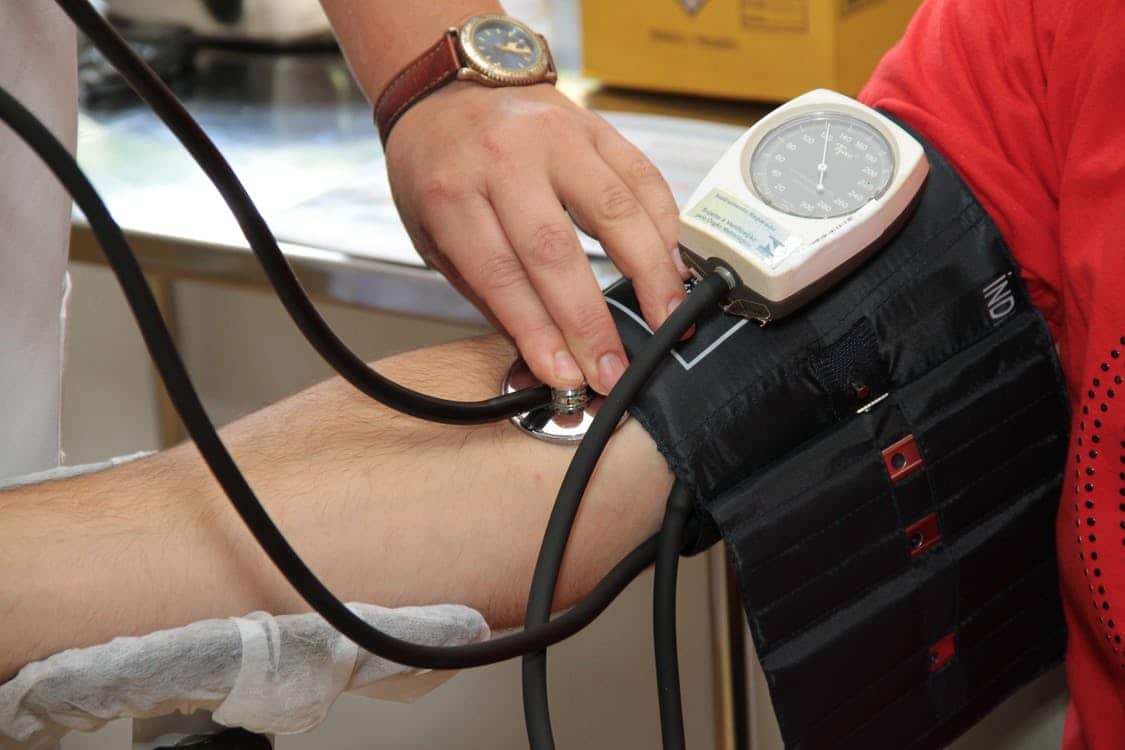Weight Loss Surgery
Am I a Candidate for Bariatric Weight Loss Surgery?
To be a candidate for surgery, the following guidelines must be met:
- You are severely obese, with a Body Mass Index (BMI) of 40 or more. Check Your BMI
- You have a BMI of 35 – 39.9 with serious medical conditions (co-morbidities) like Type II diabetes, high cholesterol or triglycerides, hypertension, sleep apnea, or other serious cardiopulmonary disorders. Check Your BMI
- You have tried other weight loss methods supervised by a physician or dietitian including changes in eating habits, behavior, exercise and/or drug therapy and you are still seriously overweight.
- You are restricted from performing routine daily activities related to work and family. Your quality of life is seriously impaired due to your weight.
- You understand the procedures, risks, and effects of weight loss surgery.
- You are committed to making the behavioral changes necessary to achieve and maintain weight goals. This includes a well-balanced diet and regular physical activity.
Please be advised that these are just general guidelines. It is always best to refer to your physician or surgeon for a specific evaluation and a determination of your candidacy for surgery.
Bariatric Weight Loss Surgery
 The decision to move forward with weight loss surgery should not be taken lightly. The surgeons at Western Bariatric Institute (WBI) perform multiple types of weight loss surgical procedures which allows patients to have options in determining the safest and most effective procedure for their situation. It is the goal of our practice to provide patients and their families with the necessary information and tools to make an informed decision as to whether weight loss surgery is the right option for them.
The decision to move forward with weight loss surgery should not be taken lightly. The surgeons at Western Bariatric Institute (WBI) perform multiple types of weight loss surgical procedures which allows patients to have options in determining the safest and most effective procedure for their situation. It is the goal of our practice to provide patients and their families with the necessary information and tools to make an informed decision as to whether weight loss surgery is the right option for them.
Weight loss is a decrease in body weight resulting from voluntary activities like diet and exercise, as well as through involuntary situations like illness. However, many seriously overweight people have difficulty losing weight even when engaging in voluntary activities and consulting medical professionals for supervised dietary and physical activity regimens.
In some instances, individuals have health problems that contribute to their weight problem. Weight loss surgery is an option for many to help lose excess weight and regain health.
Weight loss surgery is known as bariatric surgery in the industry and involves surgical procedures done on the stomach and/or intestines to help a person with extreme obesity lose weight.* This is usually considered in persons with a BMI of 40 or more, or those with a BMI from 35-39.9 who are experiencing health problems like type II diabetes or heart disease (comorbidities). *results may vary.
In certain situations, persons with a BMI of 30 – 34.9 may be eligible for surgery. Determination of qualification is done on a case-by-case basis with one of our qualified surgeons.
How Effective is Bariatric Weight Loss Surgery?
Research and experience have made bariatric surgery a highly effective method to reduce excess weight. With the procedures available through Western Bariatric Institute, most patients experience improvement or complete resolution of their health co-morbidities and lose an average of 69% – 82% of excess weight over the course of 12-54 months (WebMD).* In addition, 95% of people state that their quality of life improved after surgery. *results may vary.
Our past patients are our best way to demonstrate the effectiveness of weight loss surgery. We invite you to view their before and after pictures and see for yourself what a difference bariatric surgery has made in their lives.
How Surgery Reduces Weight
A Roux-En-Y Gastric Bypass is a procedure in which a small stomach pouch is created by the surgeon which restricts patients to only a small meal at each sitting. This gradually reduces weight because of lessened food intake. Read more here.
Vertical Sleeve Gastrectomy is a restrictive procedure where 85% or more of the stomach is removed without bypassing the intestines or causing any gastrointestinal malabsorption. With this procedure, the amount of food is restricted due to the reduced size of the stomach. Read more here.
Risks of Surgery
As with any surgery, bariatric surgery patients face various risks when deciding to undergo procedures. Individuals who are overweight can have greater risks of complication during an operation due to pre-existing co-morbidities (sleep apnea, high blood pressure, etc.). Thus, it is important to learn the potential risks and complications of bariatric surgery prior to moving forward. Our experts are here to discuss potential risks with you on a case-by-case basis.
Potential risks of bariatric surgery may include the following:
- Pneumonia
- Abscess
- Wound Infection
- Urinary Tract Infection
- Hemorrhage
- Transfusions
- Bowel Obstruction
- Leakage of Bowel Connections
- Obstruction of the Stomach Outlet
- Chronic Nutritional Problems
- Protein Deficiency
- Vitamin and Mineral Deficiency
Possible side effects include the following:
- Nausea
- Food intolerance of red meats, sugar and milk products
- Transient hair loss
- Loss of muscle mass
For more information regarding the risks, please consult our expert staff.
Types of Weight Loss Procedures

Weight loss surgery should be treated as a platform from which patients can make lifelong changes to their dietary and exercise habits. Each procedure has its own pros and cons and should be discussed fully with your surgeon. It is imperative for patients to have an in-depth understanding of the procedures prior to surgery.
The procedures that the surgeons at Western Bariatric Institute perform are:
1. Roux-En-Y Gastric Bypass (RYGB)
2. Vertical Sleeve Gastrectomy
1. Vertical Sleeve Gastrectomy
The Sleeve Gastrectomy is a restrictive procedure that involves removing 85% or more of the stomach without re-routing the intestines.
How is the Vertical Sleeve Gastrectomy Performed?
With this procedure, restriction of the stomach is accomplished by dividing, stapling and removing more than 85% of the existing stomach. The remaining part of the stomach is long and narrow, much like a shirt sleeve. Since the intestines are not touched, the functioning of the stomach remains the same meaning that the nutritional elements of food can still be absorbed, but the volume of food that can be eaten is drastically reduced.
Who Is A Candidate for a Vertical Sleeve Gastrectomy?
Western Bariatric Institute offers this procedure to patients who meet the criteria established by the National Institutes of Health and the American Society for Bariatric and Metabolic Surgery. Patients are considered candidates if they have a Body Mass Index (BMI) over 35 and suffer from any health condition related to obesity or have a BMI over 40. To learn more, please watch our online seminar.
2. Roux-en-Y Gastric Bypass (RYGB)
The Roux-en-Y gastric bypass procedure has been the gold standard for surgical weight loss intervention for many years in the United States. In 1991, the National Institutes of Health first recommended Roux-en-Y gastric bypass surgery for patients who had a Body Mass Index (BMI) between 35 and 39.9 and suffered from any obesity-related health condition, or people who had a BMI of 40 or more, regardless of health. Roux-en-Y gastric bypass has a long and distinguished track record in the United States, setting it apart from other bariatric procedures that have come and gone. Numerous multi-institutional long-term studies demonstrate that Roux-en-Y gastric bypass surgery improves health, enables long-term weight loss, and improves life expectancy. *results may vary.
How Is Laparoscopic Roux-en-Y Gastric Bypass Performed? In most cases, the procedure can be performed by Western Bariatric Institute’s expert surgeons in about one hour. The procedure involves making five small incisions, each of which is approximately 1 cm in length. A small camera, called a laparoscope, is inserted into the abdomen, and the surgeon works to create a stomach pouch from the larger stomach body (aka stomach remnant). A portion of the small intestine is then connected to the stomach pouch, leaving a small opening for food to travel. This procedure results in a sensation of satiety or fullness after eating small meals, and patients generally continue to feel full with small portions over the course of their lifetime. Most patients stay in the hospital one to two nights, recover quickly, and return to normal activity within 1-2 weeks. *results may vary.
Roux-en-Y Gastric Bypass is Durable and Effective For the Long Term.
Roux-en-Y gastric bypass has been the most widely performed bariatric procedure in the United States for many years. Many long-term studies now demonstrate that the procedure is a durable and effective aid to long-term weight loss, health, and improved longevity. Most patients experience rapid weight loss immediately after surgery and continue to lose weight over the next 18 to 24 months.* Most studies, and the extensive data at Western Bariatric Institute, show that over 95% of people succeed in significant weight loss and health improvement.* Numerous studies indicate that heart problems, lung problems, diabetes, hypertension, obstructive sleep apnea and painful musculoskeletal problems improve in a high fraction of patients who have undergone Roux-en-Y gastric bypass. *results may vary.
Who Is A Candidate for the Roux-en-Y Procedure?
Western Bariatric Institute offers the laparoscopic Roux-en-Y gastric bypass to patients who meet the criteria established by the National Institutes of Health and the American Society for Bariatric and Metabolic Surgery. Namely, patients are candidates who have a Body Mass Index from 35-39.9 and suffer from any health condition related to obesity. Anyone with a BMI of 40 or more, regardless of health conditions, is a candidate. Some people are not candidates for the Roux-en-Y gastric bypass due to other medical concerns. These should be discussed with your surgeon.